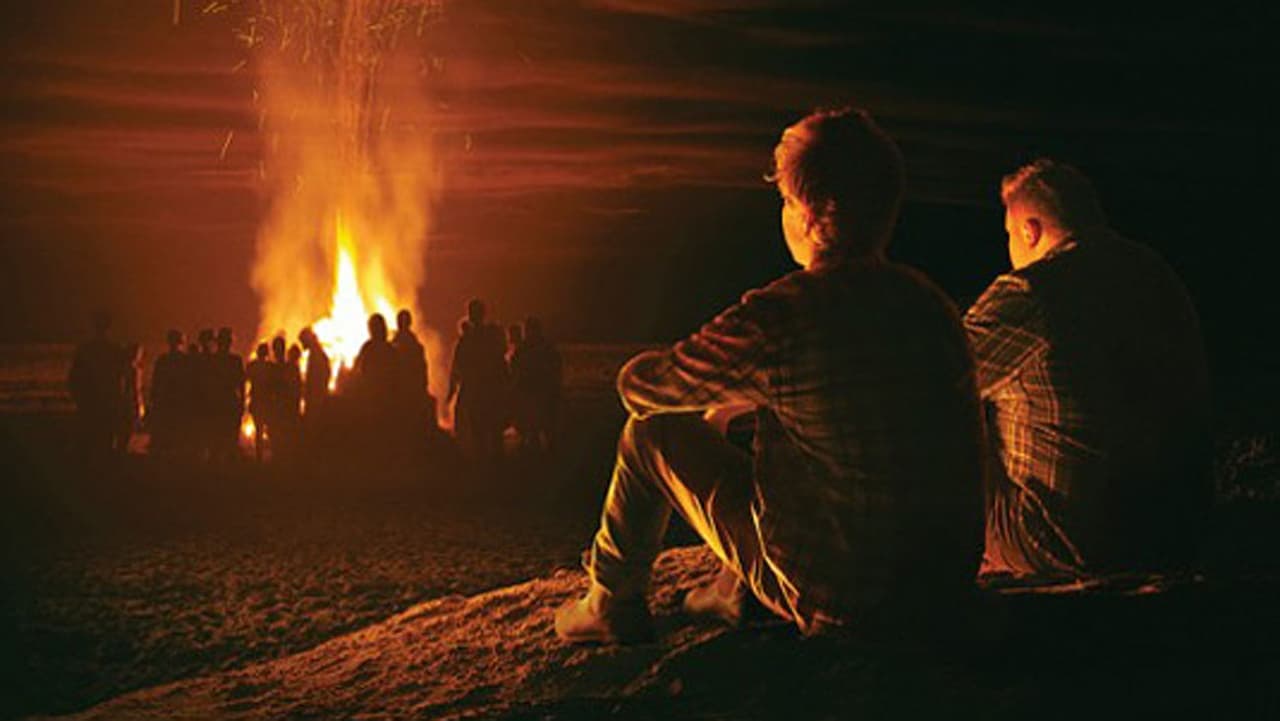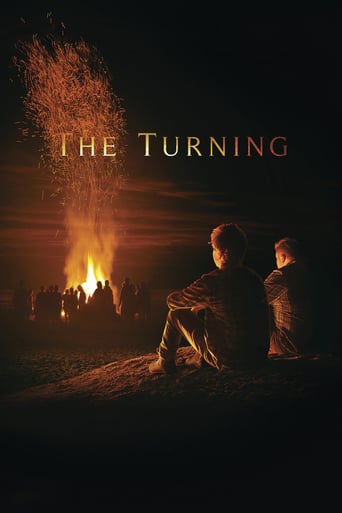



Intense, gripping, stylish and poignant
Charming and brutal
Best movie ever!
There are moments that feel comical, some horrific, and some downright inspiring but the tonal shifts hardly matter as the end results come to a film that's perfect for this time.
View MoreI haven't even watched this garbage movie but i read the short story big world, what a mistake that was. meg is as "thick as a box of hammers" and when biggie takes Meg under the covers and makes her cry like a bird, causing the protagonist to cry it is honestly the best display of emotion I have ever seen from a Novel truly encapsulating the Human emotion, but it doesn't change the fact that the book is trASH
View MoreThis is an Australian art-house film or rather films. It is the idea of Robert Connelly who brought us the excellent 'Balibo' in 2009. He has brought together seventeen directors and writers to make a version of the book 'The Turning' by Tim Winton. This is essentially a collection of short stories that all have the theme of 'turning' or changing and to say it is a mixed bag is a massive understatement.Each segment or 'chapter' has been made as a separate film and that can be a bit confusing as you lose the flow of the overall piece; but that is highly intentional. The acting is all well above average with some notable performances. There are some themes that seem to be recurring, such as disfigurement, poetry, narration, regret and more over loss. The subjects vary as much as anything else, including first love, hidden childhood memories, trailer parks, Jesus and Volks Wagens. We also have some modern interpretative dance - just to prove how art-house the whole ensemble is.Now as I said this is ambitious and in most respects that ambition is realised. However, this is 173 minutes long and, as such, required some commitment to stay the course. It should be the sum of all its parts but that too is a 'big ask' as is the colloquial these days. The parts are so different that I felt some were completely out of kilter with the rest and others almost stand alone stories. And I think that is the intention here, after all they are all short stories and so would want to be both different and stand alone. But that is also the weak point as you will inevitably like some an awful lot more than others.I am a fan of alternative and art-house cinema but this did require bearing with as I said it is nearly three hours long, but it is still a commendable effort but I would not be able to sit through it twice.
View MoreOverlong, overwrought and overly depressing The Turning is another example of an Australian film or in this particular case 18 mini-films existing for seemingly the sole reason to showcase just how sad and miserably us Aussie's can be and how life here is obviously just far too tough. With much talent and much promise behind this project it is therefore sad to admit that this 3 hour wannabe opus developed by Balibo director Robert Connolly is just such a miserable and tough watch.Based upon a collection of author Tim Winton's short stories The Turning's ties that bind are all participants are alive and going through the motions, motions that rarely if ever detour from a soul hurting ambiance of depression that tinges the entire film with such a sour taste it's hard to see why it exists other than to try and be realistic and haunting but what we end up with is a film that could act as some form of torture for those asked to sit down with it for 3 hours. This raggedly assembled collages of pain go from trailer trash domestic abuse cases, man called "Bonar", cops caught up in corruption and creepy ginger kids who like to play with loaded rifles. These mini-episodes of grief and depravity are all so short and uninvolving that you forget that not only in front of the camera is talent but behind it also.Featuring a varied collection of some of Australia's favourite and best actors including Cate Blanchett, Hugo Weaving, Rose Byrne and Richard Roxburgh the film promises to be a fine showcase to strut the acting ability of our nation but in the end product it would be suffice to say that only Rose Byrne and Hugo Weaving make any sort of go at material that must of been hard to work with. behind the camera also we have many fine Australian based directors in Justin Kurzel, Warwick Thornton and Tony Ayres along with actors David Wenham and Mia Wasikowska trying their hands at developing some nice little tales of hard lives. Many of the pieces are fine looking and feature a well constructed score but its hard to recommend them on this alone.The Turning is a missed opportunity that offered to gather together some of the finest film centric people Australia has to offer but thanks to a disjointed feel to the material, a reliance of being emotional rather than entertaining and a bunch of truly unneeded episodes the film is just a complete train wreck that at 3 hours is a particular journey you don't need to or should want to take. All on screen and behind screen have done better and will do better in the future making The Turning a film you can avoid without a second doubt.1 and a half depressing life snapshots out of 5 For more movie reviews and opinions check out - www.jordanandeddie.wordpress.com
View MoreAmbition shines through every frame of The Turning, a long, spectacularly photographed event that appropriates novelist Tim Winton's book of the same title into a brilliantly layered, thematic pastiche. It's one of the largest and most epic Australian films ever made. At three hours long, there are seventeen different, overlapping short films, by eighteen different directors, on display. There are episodes directed by the likes of Warick Thorton (Samson and Delilah), Robert Connolly (Balibo), Mia Wasikowska and David Wenham. Cate Blanchett, Rose Byrne, Richard Roxburgh and Hugo Weaving, feature amongst the cast. Some of these stories follow the same character at different stages of their lives but are played by different actors. It is not as confusing as it might sound as there is utter clarity in how these stories are told. It's entirely possible to enjoy many of the short films as separate tales without concern for the continuity of the characters. Tim Winton is an author whose writing is primarily visual and dedicated to enriching the setting of the story. Here is an extract from his short story "The Turning": "It was actually a brilliant autumn day. Sunshine felt pure and silky on her skin; it took her mind off the chipped tooth and her throbbing lip." The precision of the imagery in Winton's writing has invited an adaptation that is purely cinematic. The camera substitutes the author, hunting the same level of specificity in the images so that the themes and the feelings of the characters often unfold without words. This is an enormously beautiful film. Wide angles are used strikingly to heighten the scale and the atmosphere of the naturalistic environments. The camera draws in closer to frame key moments and images. There are slow-motion shots of beaches, water, dirt and sand. An AFL player stands in the middle of an oval, with a bow and arrow ready, thinking about his final goal. Water droplets fall from the skin of a person's back and waves threaten to strangle a man as he clings to his surfboard. The technique of capturing these particular images and then infusing them with dramatic narrative tension is awesome and vivid. One of the other pleasures of the film is the consistence in which many of the stories find thematic coherency. Beneath the highly stylised exteriors of the imagery are understated social comments and metaphorical observations. In one episode Cate Blanchett's character and her mother in-law sneak into a backyard. They're not sure if they're at the right house but they jump in the swimming pool fully clothed anyway. Undercutting this funny moment is a glimpse into an alternative, frivolous life, where one gets along happily with their in-laws. Nostalgia and wonder are a large part of Tim Winton's own writing. His short stories are like fragments of childhood memories, reproduced on paper. Likewise, these film vignettes echo the sentiments of growing up so that the narratives feel dreamlike, providing distorted memories and reflections on adolescence and friendships. As the setting alternates between the sunburnt outback and the quiet banality of suburbia, both landscapes are subjected to difficult themes, like alcoholism, domestic abuse, jealousy and self-satisfaction through religion. Despite the differing contexts, these themes are always visible and compelling, adjoining the stories through meaning, style and character. One of the best episodes is called "The Turning" and features Rose Byrne giving a terrific performance as a tattooed woman living in a trailer park, who is beat-up by her husband but finds solace in her new neighbours. Rose Byrne has been at the heart of a number of Hollywood comedies and her character here is sometimes very funny too. Physically and verbally though, it is unlike anything she has ever played before. She's sadder and more tragic. Another great entry is called "Fog" where a policeman must escort a young female journalist to locate a body in the bushland covered by a hazy fog. The atmosphere is utterly haunting, cold and desolate. The setting becomes a powerful metaphor for the policeman beginning to lose sight of his moral bearings. It's another example of the film balancing its sympathetic characters and the ambiguity of its subtext too. Despite the long running time, I hope that audiences will give the film a chance because although not all the episodes will be appealing, and there are some strange additions, many are beautifully crafted, forging subtle meanings from some highly unique images. Very few films are this epic in scope and ambition, while still able to sustain a cohesive series of thematic goals of universal and cultural appeal. It's a striking achievement in cinematic storytelling.
View More